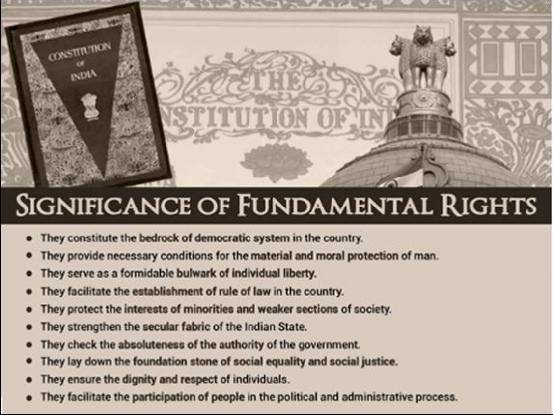6.28.2. Description
Article 35 states that power to make laws to give effect to FR shall vest only in the Parliament and not State Legislatures. This would ensure that there is uniformity throughout the territory of India in both the laws made and the punishments prescribed for offences against Fundamental Rights.

7. Are Fundamental Rights Absolute
Fundamental Rights don’t give absolute powers to an individual. They are restricted rights. In Gopalan case, 1950, SC held that there cannot be any such thing as absolute or unmonitored liberty, for that would lead to anarchy. On other hand, if the state has absolute powers, then that would lead to tyranny. The purpose of Fundamental Rights is to establish rule of law and hence there should be a balance between individual rights and social needs. That’s why constitution empowers the Parliament to provide reasonable and fair restrictions on the Fundamental Rights.
